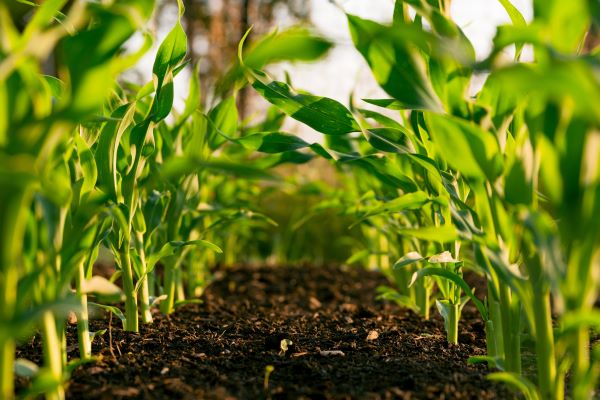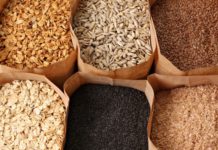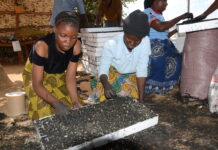Soil is one of the earth’s most complex ecosystems and is critically important to future food and nutritional security worldwide. Healthy soil stores carbon and retains more moisture, improving resilience during dryer seasons. Its ability to hold more water also reduces the impacts of toxic runoff that depletes essential nutrients.
Even politicians in the United States have recognized soil’s effects on food production, bringing 166 bills related to soil health up for debate between 2015 and 2018.
In Africa, where the total population reached over 1.4 billion in 2022 — an uptick from 811 million people in 2000 — improving soil health is more vital than ever, especially as extreme heat and other climate change impacts ravage agricultural lands and send nations into dire nutritional need.
With soil health essential to supplying African nations with a robust food economy, adopting soil conservation management strategies must be a priority to guarantee climate resilience.
The State Of Soil in Africa
The growing global population’s changing demands suggest that cereal and livestock production may need to boost operations between 60% and 100% by 2050. As a result, sub-Saharan Africa will have to invest in agricultural research, technology and infrastructure to safeguard their food security.
Africa’s agricultural sector currently faces severe challenges associated with dire temperatures and prolonged droughts. According to the United Nations’s 2018 report, The State of Food Security and Nutrition in the World, developing countries have experienced twice as many extreme climate events since the 1990s — approximately 213 occurring annually between 1990 and 2016.
Of course, higher temperatures result in water shortages, dryer air and inadequate soil conditions for crop production, poorer animal welfare and worsening labor productivity.
Using synthetic pesticides and fungicides to combat pest infestations and disease also reduces soil fertility significantly. Soil contains rich taxa of about 10 to 100 million organisms while driving unique natural processes like nutrient cycling, maintaining soil structure, carbon sequestration and natural pest and disease control.
When farmers excessively apply pesticides, fertilizers and fungicides to their crops, the chemicals seep into the ground, altering the soil nutrients and reducing the mortality of organisms responsible for maintaining soil health. Considering it takes about 5,000 years to form six inches of topsoil, decreasing widespread pesticide use in Africa’s agricultural sector will help stimulate soil fertility and create a more climate-resilient food source.
Soil Solutions for Climate Resilience
Farmers in sub-Saharan Africa can take several measures to promote soil health for climate resilience, such as a more holistic approach to improving soil quality, nutrients and irrigation practices.
For instance, in Mozambique — where catastrophic cyclones resulted in significant flooding and crop loss in 2019 and 2021 — farmers have had to rebuild their soils from salinization and erosion. Their methods have comprised better crop rotation, intercropping and limiting pesticide applications to site-specific areas to prevent soil nutrient depletion.
In turn, larger soil areas can recover and accumulate organic matter over time. Organic matter boosts bacterial and microbial growth, allowing soils to hold more moisture and withstand erosion.
Embracing soil management practices is another way farmers can improve crop productivity and may entail integrated pest management, reduced tillage, organic soil inputs, companion planting and expanding crop varieties.
Only 3% to 18% of African farms have implemented proper soil management strategies, mainly on a larger, commercial scale. Meanwhile, smallholder farmers struggle to adopt soil conservation practices due to weak agricultural policies, limited monetary, institutional and technological support and conflicting advice about soil health and climate resilience.
More substantial policy interventions, advanced soil science research, farming incentives and greater dissemination of resources are necessary if the broader agricultural sector is to execute a climate-smart recourse for healthier soil in Africa.
Africa’s Food Security Depends on Soil Health
Climate change shows no sign of slowing down as temperatures heat up and an influx of extreme flooding and weather events are likely to occur soon. Feeding Africa’s growing population amid a climate-stricken planet requires improved soil quality for climate-resistant crop yields.

Jane is an agriculture and environmental journalist and the founder and editor-in-chief of Environment.co, where she covers sustainability and eco-friendly living.








